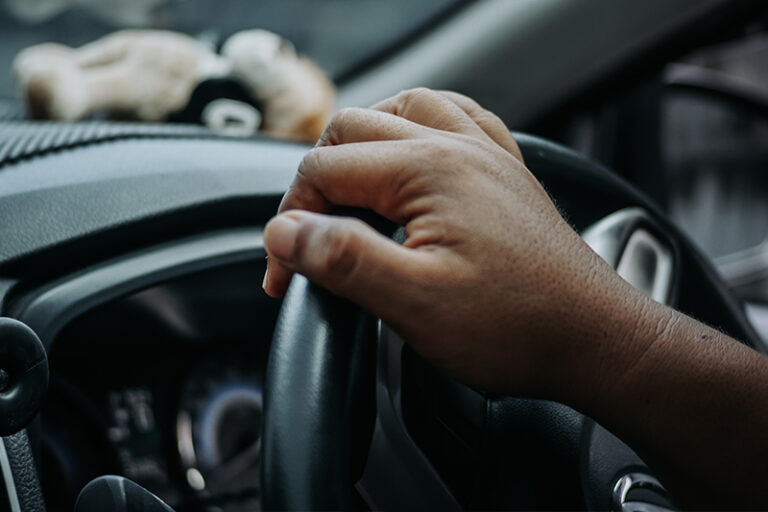We’ve all had those moments — you hop into the car after a day at the beach, a pool party, or even just walking around the house, and you think, “Do I really need to put my shoes on?” That question often leads to one of the most common driving myths: Is it illegal to drive barefoot in Florida?
The short answer: No, it’s not illegal to drive barefoot in Florida. But, as with most legal topics, there’s more to the story than a simple yes or no. In this article, we’ll explore what Florida law actually says, why the myth exists, and whether driving barefoot is a good idea for your safety and comfort.
Florida Law on Driving Barefoot
Florida has no specific statute prohibiting driving without shoes. According to the Florida Department of Highway Safety and Motor Vehicles (FLHSMV), you are free to operate a motor vehicle barefoot, wearing flip-flops, sandals, socks, or any other type of footwear — or none at all.
However, this freedom comes with an important caveat: You must still maintain control of your vehicle at all times. If driving barefoot leads to an accident or unsafe driving behavior, you could still face charges such as careless or reckless driving.
Why Do People Think It’s Illegal?
The belief that driving barefoot is against the law is one of the most widespread driving myths in the U.S. There are a few reasons for its persistence:
- Driver’s Education Warnings – In the past, some instructors discouraged driving barefoot, claiming it was unsafe or illegal.
- Safety Misunderstandings – People often assume that if something is unsafe, it must be illegal.
- Urban Legends – Word of mouth spreads myths quickly, and without checking the actual laws, many accept them as fact.
In reality, no U.S. state outright bans barefoot driving, although some have laws that could indirectly make it an issue in certain circumstances.
Is It Safe to Drive Barefoot?
While it’s legal, the bigger question is whether it’s safe — and opinions on this are mixed.
Advantages of Driving Barefoot
- Better Pedal Feel: You may have more precise control because you can feel the pedals directly.
- Avoids Slippery Shoes: Wet or sandy flip-flops can slide off pedals and cause accidents.
- Comfort: Sometimes it’s simply more comfortable, especially after long walks or beach trips.
Risks of Driving Barefoot
- Injury in Emergencies: In the event of an accident, your bare feet are more vulnerable to cuts or burns.
- Reduced Braking Force: Without the rigidity of a shoe sole, you may need to press harder on the brake pedal.
- Foot Fatigue: Long drives can make your feet tired without proper support.
While driving barefoot isn’t inherently unsafe, it does require you to be mindful of these potential drawbacks.
What About Flip-Flops, High Heels, or Other Footwear?
Interestingly, some driving experts believe certain types of shoes are more dangerous than going barefoot:
- Flip-Flops: Can slip off your foot and get stuck under pedals.
- High Heels: Can limit your ability to press pedals properly and may snag on floor mats.
- Thick Boots: Can reduce your sensitivity to pedal pressure.
From a safety standpoint, a secure, flat-soled shoe is often the best choice for driving.
Florida’s Careless Driving Law and Barefoot Driving
Although there’s no barefoot-specific law, Florida’s Careless Driving statute (Florida Statute 316.1925) states that drivers must operate vehicles “in a careful and prudent manner” to avoid collisions and maintain control.
If an officer believes your barefoot driving contributed to unsafe operation, you could be cited under this law. That means:
- If your bare foot slips off the brake and causes an accident, you could face legal and financial consequences.
- Insurance companies could argue that your lack of proper footwear played a role in the accident, potentially affecting claims.
Insurance Considerations
While insurance companies typically won’t deny a claim just because you were barefoot, they can still investigate whether your footwear (or lack thereof) contributed to the crash. If it did, they might reduce or deny certain coverage based on negligence.
Tips for Safe Barefoot Driving in Florida
If you choose to drive barefoot, here are some safety tips:
- Clean Your Feet First: Sand, water, or dirt can make pedals slippery.
- Check Pedal Grip: Ensure your car’s pedals have enough grip to prevent slipping.
- Keep Shoes Handy: If you need to exit the car in an emergency, shoes will protect your feet from hot pavement or debris.
- Avoid Long Barefoot Drives: On extended trips, shoes can provide better support and reduce fatigue.
Barefoot Driving in Other States
While Florida law is clear, you might wonder about other states if you plan to travel. Across the U.S., no state makes barefoot driving outright illegal. However, like in Florida, you could face other charges if it leads to unsafe driving.
For example:
- In Alabama, barefoot driving is legal, but officers can still cite you for reckless driving if it impairs control.
- In Ohio, a barefoot driver could be held liable in civil court if lack of footwear contributed to an accident.
Frequently Asked Questions
Q1: Can I be pulled over in Florida for driving barefoot?
Technically, no — there’s no law against it. However, if your driving appears unsafe, you can still be stopped.
Q2: Will I get a ticket for barefoot driving in Florida?
Not directly. But if you’re in an accident and it’s linked to barefoot driving, you could face other citations.
Q3: Does Florida recommend driving barefoot?
The state doesn’t officially encourage or discourage it, but many safety experts recommend secure, comfortable footwear.
Q4: Is it safer to drive barefoot or in flip-flops?
It depends. Flip-flops can slip and get caught under pedals, while barefoot driving offers more pedal control but less foot protection.
Final Thoughts
So, is it illegal to drive barefoot in Florida? Absolutely not. Florida law allows you to drive without shoes — just make sure you maintain full control of your vehicle.
That said, just because it’s legal doesn’t mean it’s always the best choice. Think about safety, comfort, and practicality before you hit the road barefoot. And if you decide to go shoeless, follow safe driving practices to protect yourself and others.
Whether you’re leaving the beach or just want to feel the pedals under your feet, knowing the law (and the risks) will help you make the right decision.











